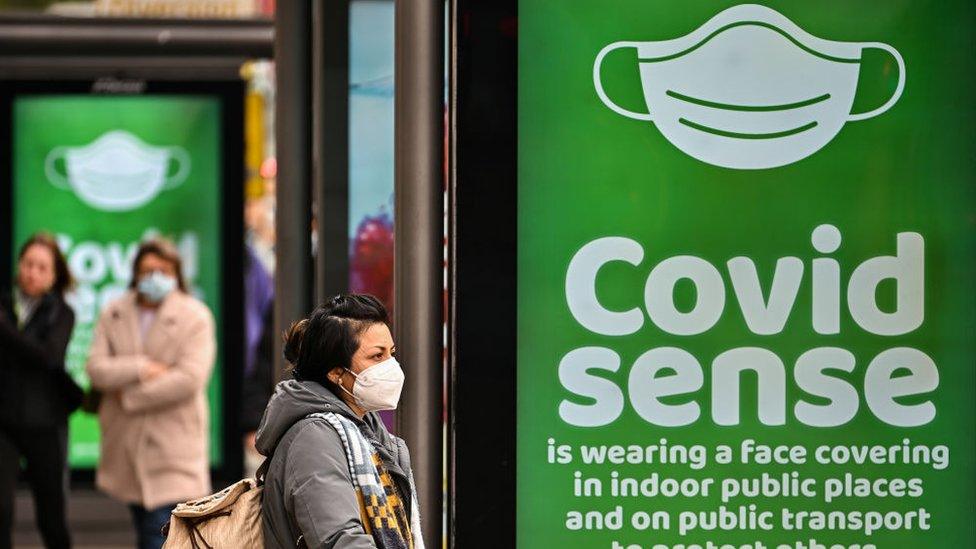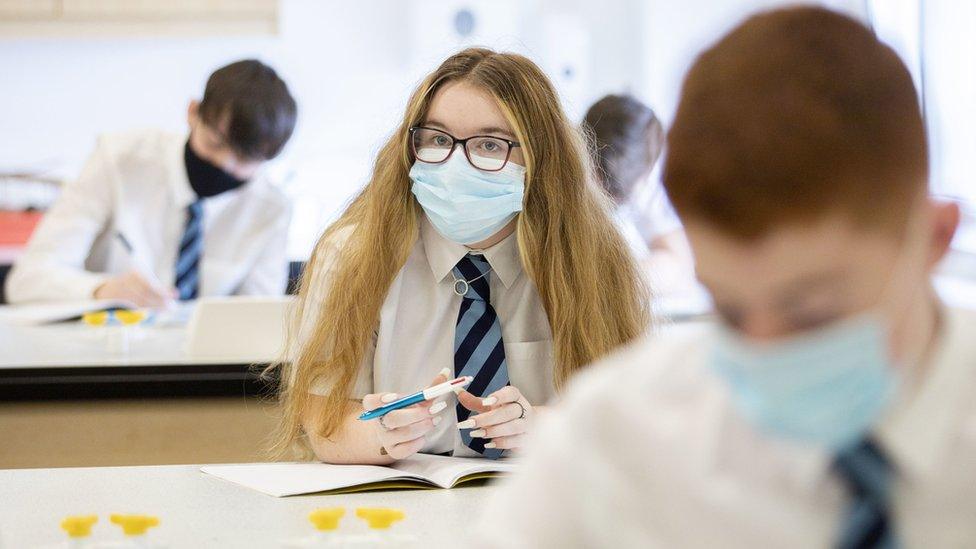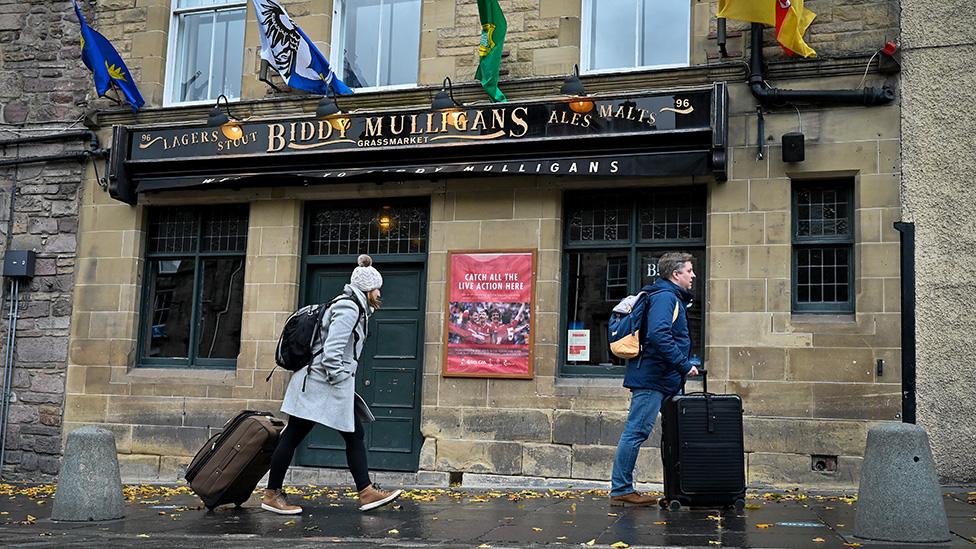Covid in Scotland: Rules around outdoor mixing set to ease next week
- Published
- comments
Rules around the number of people who can meet outdoors are set to be eased
Rules around outdoor socialising are likely to ease next week, the first minister has said.
Nicola Sturgeon said more opportunities to see loved ones would be the "first steps" taken out of lockdown.
Only two people from two households are currently allowed to meet outdoors, with people being urged to stay at home apart from for essential reasons.
Ms Sturgeon said she hoped to announce "relatively minor but important" changes on Tuesday.
She said these would relate to restrictions on meeting outdoors and how young people are able to interact with friends.
The government's recent plan for easing lockdown said that allowing four people from two households to meet outdoors was unlikely to happen before 15 March.
Ms Sturgeon said the progress with the vaccine programme and the decline in hospital admissions and case number should give encouragement that "greater normality is firmly on the horizon".
But she added: "It's really important we don't get carried away yet.
"The overall stay at home message needs to stay for a bit longer so that we don't send our progress into reverse.
"But I'm very keen if we can we should all get a bit more opportunities to see loved ones as the first steps we take out of this lockdown."
The Scottish government has been considering accelerating its exit plan out of lockdown, which currently says that the country will return to a levels system towards the end of April.
However, new rules are set to make it harder for areas to drop down to lower tiers of these restrictions.
If an area is to see restrictions lifted, the number of positive cases will need to be far lower than when the system operated last year.
It is also expected that non-essential retail, hospitality and services such as gyms and hairdressers will reopen as part of the levels system.
But business leaders have said a return to this framework would be "devastating" and have called for more clarity on how the system would work.


The first minister and Chief Medical Officer haven't quite started playing Ian Dury's Reasons To Be Cheerful Part 3 during the daily briefing, but the change of tone in recent days has been dramatic.
Frankly, the figures are improving far faster than anyone dared hope.
The rolling death toll is falling and is at its lowest since early October. The number of patients in hospital with Covid - while still high - is falling rapidly, as are new Covid admissions.
There is growing confidence this is down to the vaccination programme as well as lockdown.
Virtually everyone over 65 has now had their first jab as have nearly 40% of those between 60 and 64 and a third of those aged 55 to 59.
Positive tests are falling and the proportion of positive tests is consistently below the crucial 5pc benchmark.
Because those most at risk are being vaccinated first, jabs should mean far fewer hospital admissions or deaths. The portion of positive tests where the patient is asymptomatic or only mildly unwell may rise. Vaccinations also appear to cut transmission rates.
While some scientists argue for a strategy based around the complete elimination of Covid, the argument made to the public has always been about saving lives and protecting the NHS.
There is a question over whether the public would support harsh measures if the risk of death and hospitalisation had been greatly reduced.
The challenge for those responsible for regulations is to strike the right balance between persuading people that difficult measures are still needed, ensuring people follow the rules and offering the tantalising prospect that the dark clouds may now be lifting and the sun will soon shine again.

As part of the lockdown easing plans, it was announced on Tuesday that all secondary school pupils in Scotland will return to classrooms part-time from 15 March - a month earlier than originally planned.
The latest statistics showed that further 498 people have tested positive for Covid-19 - the lowest daily figure since 27 September - representing 3.1% of the tests carried out.
The FM said 11 new deaths had been reported of people who had tested positive for coronavirus within 28 days, bringing the total under that measure to 7,409.
A further 29,064 people received the first dose of the vaccine while 8,139 received the second dose.
And the number of people in hospital with the virus has fallen by 52 to 666, with 64 patients in intensive care - three fewer than yesterday's figures.
Scottish Labour leader Anas Sarwar welcomed the improving statistics, but said the number of vaccinations and tests being carried out was "nowhere near" the level it should be.
He added: "The vaccine is the way that we try to defeat the virus - or defeat it as best we can.
"The target was 400,000 vaccinations a week and we are nowhere near that.
"But the vaccine is only one part of this. People need to see that testing and tracing is still a huge, huge part of getting back some level of normality."
- Published1 July 2022

- Published2 March 2021

- Published9 March 2021
